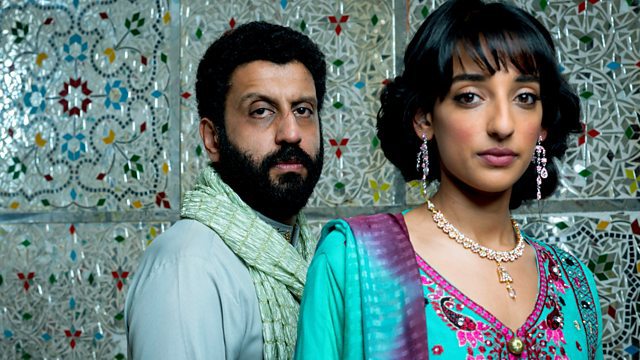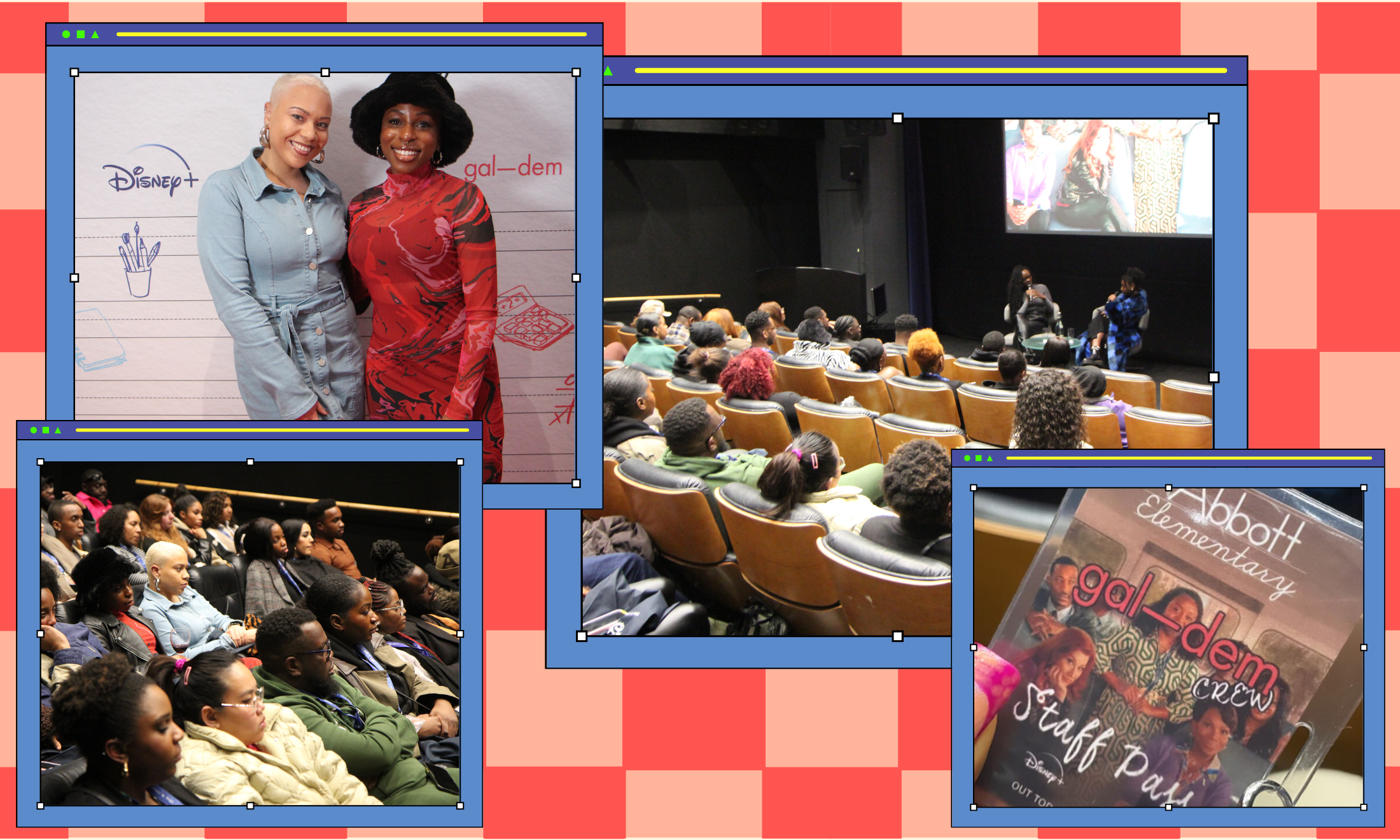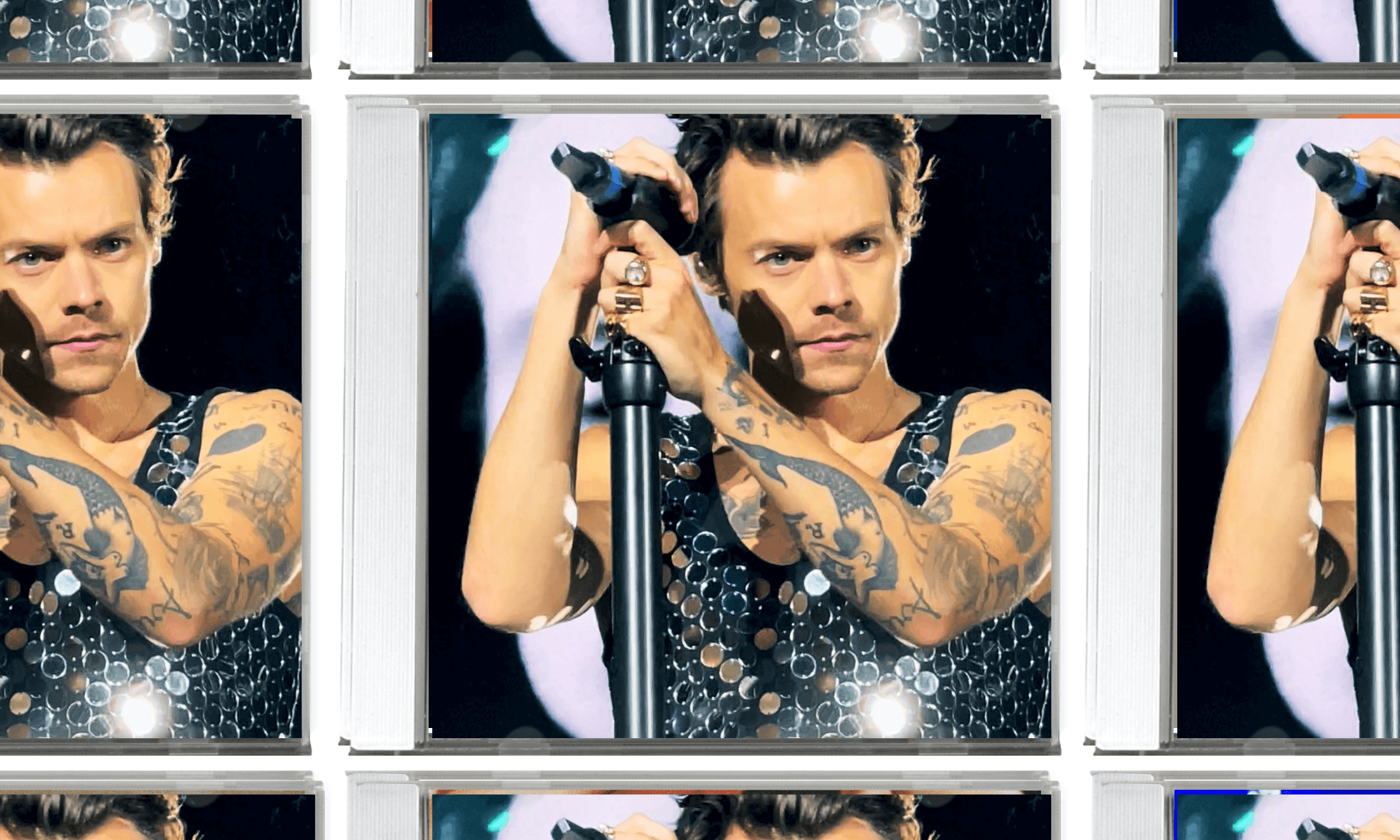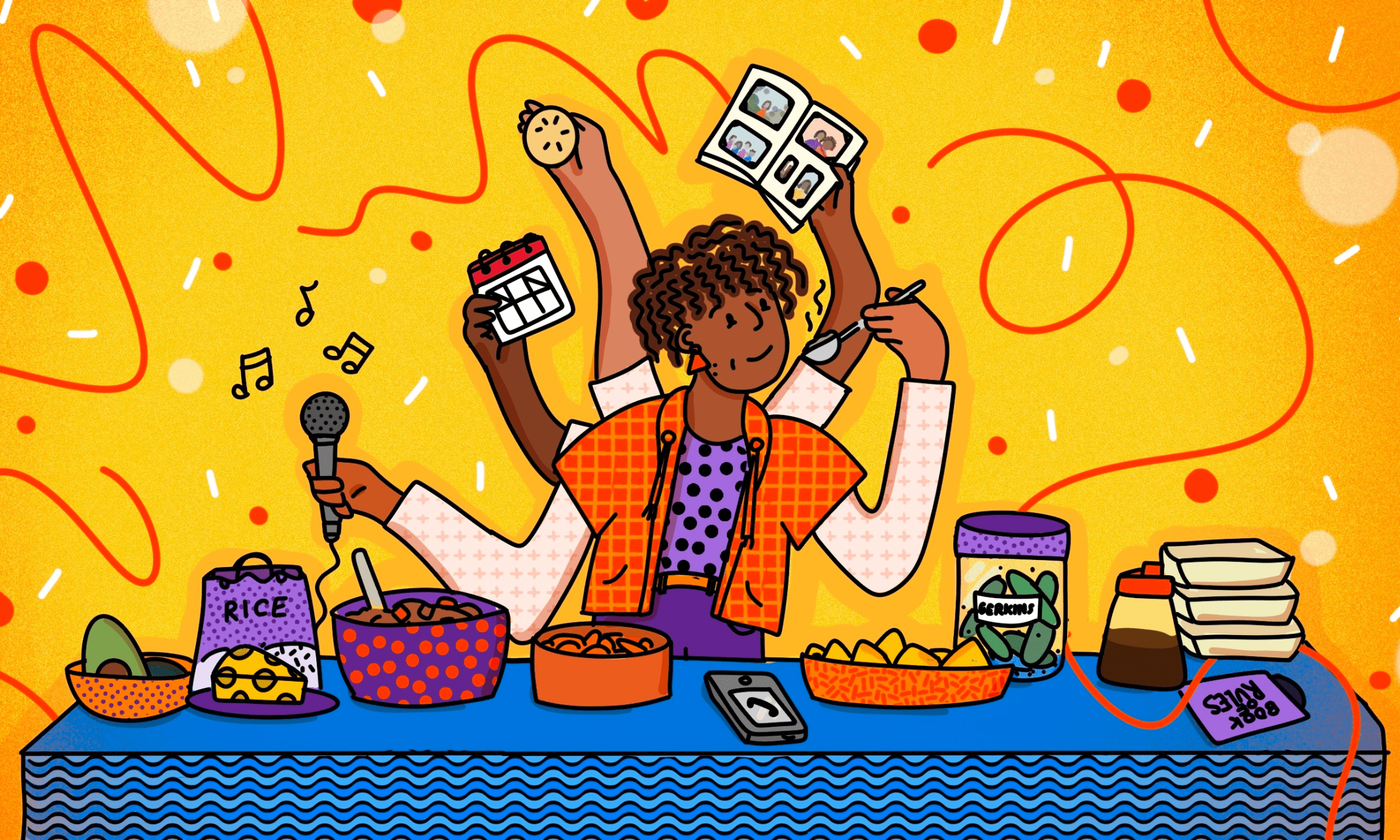
gal-dem in conversation with Vinay Patel: the writer behind Murdered By My Father
Halimah Manan
03 May 2016
After Murdered By My Father aired on BBC in March, gal-dem contacted Vinay Patel, the drama’s screenwriter, and had a chance to talk to him about everything from the premise to thematic choices.
gal-dem: I think honour is something that definitely comes up a lot (though not exclusively) in South Asian cultures. Was it something you were aware of, growing up? How did you decide to write about it?
Vinay: It’s definitely not exclusive to South Asian cultures. It was also something I was not aware of growing up. I understood that people could be shunned by a community and/or families for being seen to disgrace them, but the aspect of violence was relatively new to me. It wasn’t anything I would’ve thought to have written on growing up, certainly.
Did the BBC ask you to write this film, or did you pitch it? Either way, in a climate of hysteria targeted towards brown bodies, were you worried about its reception and writing it for the BBC?
The BBC approached my agents about the possibility of me writing it. Initially, I wasn’t interested and was actually quite proud to turn it down. Though I hadn’t known of honour killings growing up, it’s now something I recognised as, dare I say it, trope-y in dramas especially regarding brown bodies and I wanted my work to push against it.
But having had a look at the research and the initial ideas the producers had I saw that there was scope to do something interesting with the drama as well as satisfy the desire for awareness for the charities involved. I wasn’t worried about writing it for the BBC – if anything, it felt like the best place to do it because you knew you wouldn’t be pushed to sensationalise it. I was worried about the reception. It was something on my mind throughout and I was constantly asking myself what I could do to mitigate it. It was important for me to check that at all times I was targeting a particular problem, not a broad set of people.
How conscious were you of stereotypes, going into this film, considering a general lack of representation of South Asians in mainstream TV? Did they affect how you wrote the film, at all?
They did, yes. I felt very strongly that this needed to be something that stood up as a piece of strong character drama in its own right beyond the issue. I tried to push against stereotypes I felt had been around this kind of story. I wanted to humanise the father, make the victim a rounded person with more than the violence against her defining her, I wanted them to be a family you recognised, I wanted you to see that these people could, in many ways be you, no matter who you are.
I’ve recently come across an article about how honour killings are quite similar to patriarchal domestic violence and abuse and not necessarily limited to South Asians and the diaspora. Do you agree? Why did you choose to focus on an Asian-British Muslim family?
I do agree. For me, honour violence is a domestic violence issue first and foremost. If you think South Asians are the only group where there’s violence against women predicated on the insecurity of men and their subsequent need for control, you’d be wrong. It permeates so many cultures, even if the manner of expression is not necessary always lethal. It’s worth flagging that men are also victims of honour violence and women, such as mothers, can be involved in helping it happen too but it is by and large enforced by men.
We focused on a British Pakistani family because the vast majority of calls that come in to the charities are from people of that background. It’s also, I believe, the image in lots of people’s heads when they think of honour crime. I think it was worth grappling with that rather than ducking it, taking that image and trying to dislodge the stereotypes by deepening the understanding of the characters involved. There are people here doing terrible things but they are ultimately still people even if they are horribly flawed. Whilst we had to provide some level of specificity to the family, neither the Pakistani or the Muslim aspects were what I felt were important and I tried not to focus on them. The emotions that drive these crimes are both more fundamental and universal than that and I think it’s telling that in the responses I’ve seen that you’ve had people from white women from Devon in their 70s to young Hindus saying “I see things in there that I recognise.”
At the start of the film, a lot of the overarching themes are introduced – Salma’s future marriage, Shahzad’s money problems, the relationship between Salma and Imi pulling her away from a wedding… were these all intentional, or am I reading too much into it? Was your intention to foreshadow the circumstances of the rest of the film?
Very much intentional. With something like this you need to nail down as soon as you can that what’s going on here isn’t just an ephemeral wishes on either Salma or Shahzad’s part – there’s a concrete reality to their wants and fears.
There were some really powerful lines in the film. Something that resonated with me is: “Someone’s always watching.” Do you think that’s a central theme of the film and, indeed, honour-based violence in general – that someone is always there to overlook your actions and your reputation?
I think so. It’s a how a system like that sustains itself – an atmosphere of suspicion and worry even if no-one actually is looking. It’s easy for that to become internalised if that’s your every day environment. The pressure feels constantly real and enormous.
I think what really frustrated me in this film was how Imi didn’t quite understand the gravity of what was happening. Though, admittedly, he was one of my favourite characters.
For me, Imi is one of the well-intentioned liberal characters in the film and I think his views will chime with a lot of the people watching. But that frustration you speak of is almost always the flip – the solutions seem so easy…why can’t they just fix it? It’s so much harder to understand if you’re not as deeply involved in it. It was necessary to have that dynamic in there.
I’ve read a bit about the relationship between Shahzad and Salma and I have to say I agree that it was very well handled and so important to highlight the loving relationship they had. His reliance on her, as well as references to her mother were truly heartbreaking. Was it always your intention to make them close? What did you want to bring out through them?
I wanted them to be close and recognisable as a strong father-daughter dynamic. The tragedy of the situation is heightened when you understand how much this concept of status means to him – more than this love that you’ve already seen between them.
As well as this, I found the relationship between Hassan and Salma both heartbreaking and frustrating; his navigation of his trust of Shahzad was inevitable but no less upsetting. Was he meant to be a casualty of the horrifying circumstances, or an example of how easily misunderstood and reinforced such violence is?
Hassan was meant to demonstrate how easily those ideas are passed on and spread to vulnerable minds and he gets that from both Shahzad and Haroon. Equally though, he is too young to fully understand what’s happening until its too late so to my mind he’s certainly a casualty too.
I was quite confused about the nature of Shahzad’s job, though I understood that it was unstable. Did you intend for his occupation to be ambiguous? How important was it to emphasise the financial angle of the marriage and honour killing?
All that’s important to know is that his having work is reliant on the community he’s in and his place within in. The financial angle was something I was keen to put in once I read about it. Again, it adds something more to this vague idea of honour and shame. There can be a hard economic reality underlying it.
I have my own guesses for the answer to this question but why do you think Salma went back home after she ran away?
Love, duty, hope.
Why, if Shahzad’s reputation was reinstated in Salma’s death did he kill himself? Was that representative of accounts of honour killings you’ve read, or something you decided to put in?
That was something that came from a real case. Lots of times a person will do this, go to jail, and then be welcomed back triumphantly. But sometimes, there is that remorse present, that huge and immediate regret, and I felt it was more important to present that. To show anyone watching you might think about it that you won’t be a hero, but rather your actions will haunt you forever.
Why was it important to show the violence and end the film with death, rather than perhaps a solution for both Shahzad and Salma to escape the honour killing? As in, if you wrote another version of this, is there a possibility that they could have resolved these issues? Though, I suppose that depends on the point of the film – whether it was to bring light to these issues or present answers.
I think to do that would not be respectful to the people who have been harmed or killed by their loved ones. There’s no point shying away from the reality. It doesn’t always go this far, but even the violence alone – 12,000 reported cases in the last five years – is a problem worth addressing and as honestly as one can. The solutions can’t lie in a didactic ending from a one-off drama. You have to present the problem and ask the solution of those concerned because there will be a thousand different ones depending on the situation.
I know Jasvinder Sanghera advised on the film; was there anything else you took inspiration from when writing?
The real cases, of course, and we were also helped by IKWRO – the Iranian Kurdish Womens’ Rights Organisation. Deeyah Khan’s documentary Banaz: A Love Story was essential viewing and a book from which I tried to glean insight into the minds of the killers was Rana Husseini’s Murder in the Name of Honour.
On a dramatic level, Arthur Miller’s A View From The Bridge was my touch stone right from the start: the story of a man who’s inability to deal with his insecurity and great need for status in and acceptance from his community leads to tragedy.
When you were writing the film, did you have any idea who would be cast? And, during the production of the film, did you have any creative input over how it would be acted?
Yes, with most the actors I was looking at audition tapes whilst writing which was quite handy. With Adeel we offered it to him, and when he accepted it did shift what we did with that character since he was naturally a more gentle presence than I had envisaged.
As the writer I would never attempt to control how the film was acted, but I made suggestions as to mindsets of the characters in the script. Was happy for those to be ignored if needs be!
I noticed there were undertones of the family and community’s Muslimness – if I’ve perceived that correctly. Was that a conscious decision, to not talk too much about religion?
Absolutely. We have to be specific because it’s a naturalistic drama, but it’s not the religious aspect that drives these acts in the main. In fact you’ll find cases in fact where men say that they know God will punish them for what they’ve done but still think its the right thing to do. It’s about fundamental human weaknesses above anything else.
The use of English dominated throughout the film and I noticed the use of Arabic and Urdu only sporadically. Why did you use English so much?
This is a part of the aforementioned intent to make these people as relatable as possible to a broad audience. Every single casual identifier of difference I wanted to use sparingly. Again, the more you can see yourselves in these people, the better, I think.
The response has been overwhelmingly positive, as far as I can see from the media. Have you had any messages about the film? Are there any that stand out?
Frankly, nothing will top hearing from one of the charities that calls to their helplines from both professionals wanting to learn more and victims looking for help have increased as a direct result of the film. If you can help save one life, it makes everything worth it.
After all of this, is there anything you would change about the film?
Not really – I am surprisingly pleased with it considering the horror stories you hear about television. I suppose I wish I’d had a bit more screen time to play with so you could bring more texture to it, but I think all writers think that and we actually got ours bumped up from sixty minutes to seventy five so I can’t be greedy.
And, a little more general, this is your first piece for television – what challenges did you face?
The massive klaxon in my head saying “Don’t fuck up the honour killing drama for the BBC, Vinay” on repeat for the whole project was the biggie. But also issues of veracity – you know you’ll have to make dramatic leaps here and there but you want to keep it as truthful as possible, so it was useful to have the charities check over the scripts.
The process was also so fast. In theatre, where I’ve come from, you have maybe a couple of years to work on a piece. This was five months, which is nothing really. The intensity of it really wrecked it, especially when you’re researching these heartbreaking stories in the middle of it all.
Finally, with no dig at theatre, TV has a greater public responsibility which I was unprepared for. It’s one of the most democratic mediums, especially now you can stream it so you can and will get anyone telling you what they think. It has the power to change people’s lives for the better and the worse and you have to accept both sides of that, I think.
Do you have any tips for aspiring screenwriters?
Don’t worry about being shit right out of the gate. Hemingway is right when he (allegedly) said that the “the first draft of anything is shit”. Layers and detail and all that’s memorable will come later.
Force yourself to engage with work outside of your comfort zone. Try a new medium. Modern art? Comics? Ballet? Get out of your familiar artistic space. Broaden your frames of reference.
Watch bad movies/movies you hate and ask yourself why you don’t like them and what you’d do better.
Don’t be scared to delete large swathes of your work. It’s like being in a relationship that’s not working but you’re too scared to get out of it because you’ll fear you’ll be alone. You won’t. Hope for better.
Don’t spend too much time around other aspiring screenwriters.
Finally, what can we expect from you next?
Working on a couple of episodes for other people’s shows, finally getting around to a couple of plays that I had to push back because of writing MBMF, and a feature film it looks like – busy times ahead which I’m very grateful for.









